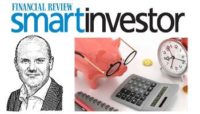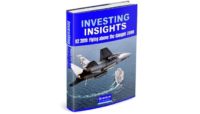As we all now know, on November 8, 2016 Donald Trump became US President-elect. He will assume office at his inauguration on January 20, 2017.
Note: To accompany this latest Investing Insights analysis, we’ve put together an interesting US Presidential Quiz. Have a go Well it’s probably wise to expect the unexpected. Anyone who tells you ‘This is what is going to happen’ is kidding themselves. With the election of President-elect Trump, we are in completely unchartered political waters. However, despite this, underlying growth in the USA remains positive and there are checks and balances built into in the political system that will ensure an effective (albeit bumpy) transition period. We have constantly predicted since December 2015 that Hillary Clinton would be elected President and that this would represent a continuation of the status quo for markets. Ignoring the politics of both sides, we simply did not think that the election of Trump was in the USA’s best financial interests. We continue to hold this view. Irrespective of whether we still hold this view, reality makes it moot. Trump is now President-elect and we and the rest of the world need to understand what this actually means for our investing decisions. We were also wrong with regards to an exception we argued would occur. We have long argued that in developed, stable western economies politics doesn’t impact on markets. In these two-party dominated states, whether Tweedle Dum or Tweedle Dee on the left or the right is elected has very little impact on markets. Where we erred was our belief that this election was different. We argued that Trump was an outlier who, if elected, would push financial and market boundaries and that the market would react accordingly. Markets have seemingly shrugged off Trump’s election success and have already moved on to other important financial issues. Below is an excerpt of our outlook published in our last Investing Insights report titled ‘Eye on the USA’ which remains equally valid today post the US election result. “Despite a sluggish start to 2016, the US economy has continued to grow, albeit at a low rate. The fears of recession that dominated the beginning of the year have receded and the US consumer continues to provide healthy support for the economy. A key feature of H1 2016 has been the rise of anti-establishment feelings: a deterioration in views towards the European Union across Europe typified by the Brexit vote in the UK and the emergence of Trump and Sanders in the USA. Few of these events seemed likely at the beginning of 2016. We remain cautiously optimistic on equity returns as we look ahead for the next 6 to 12 months but we believe in less risk-taking for the next few months. Global growth is likely to remain modest and we believe clients should retain their global diversification and that Australian returns should be higher than the paltry returns in 2015/16. By selling Europe, taking some profits in the USA and taking some profits in commercial property, we will lower exposure to growth assets and bring asset allocations more in line with target risk allocations (or even slightly underweight in growth assets in some instances). Whatever else you may expect for the remainder of 2016 into 2017, you should expect continued spikes in volatility (rapid market upswings and downswings). Surprising election results; questions over central bank actions and global growth; doubts about China; fears over a possible UK recession and difficult negotiations with Europe could all rattle markets. And they are just the known unknown geo-political events, we won’t even try to list the unknown unknowns (credit Donald Rumsfeld; another famous Donald). That means we’re more likely to experience a bumpy ride than smooth sailing. Having said that, we believe it can be in long-term investors’ best interests to look past volatility and focus on the underlying market fundamentals. One thing to keep an Eye on the USA is potential talk of helping grow the economy by investing in infrastructure. Much of America’s ageing infrastructure (roads, railways, etc) built decades ago needs replacing and such investment could help boost GDP growth by 0.5% to 0.8% and create 500,000 to 800,000 new jobs. However, there would be a year or two lag between announcing such a policy and its effect being felt in the wider economy (ie 2018-19). While it would certainly create jobs, we would not include the building of a wall between the USA and Mexico as a net positive economic move. The downside to such an infrastructure policy would be it would need authority from Congress to increase spending and debt. Who controls the houses of Congress post November could be crucial to such increased infrastructure investment.” So following the election of President-elect Trump, here is our best professional judgement on what may happen. Markets just didn’t see this coming and nor did we. While in the first instance the futures markets (which operate outside of normal trading hours when the vote counting was being done) fell 5%. The market only fell 5% because that is when limit rules kicked in stopping further falls. The following day (Wednesday), the US market (S&P Top 500 companies) initially fell as expected, but by the end of the day it was up 1.1%. We live in interesting times. If there is a sentiment to ‘Sell America’ in the coming months based on Trump’s victory, we would cautiously encourage clients with funds available to ‘Buy America’ into any market falls. The American experiment has been written off more times than we can recall in our lifetimes. The Japanese were going to overtake America, American manufacturing would completely disappear, ‘peak oil’ would lead to economic ruin, the attacks on domestic soil on 9/11 would change everything forever, China was going to overtake America, the GFC would be worse than the Great Depression, the election of Trump marks the end of days, etc, etc. In the coming days and weeks, as more information comes to hand and as the market digests that information, markets will tick back upwards as they realise the sky is not falling in and the economic sun will indeed rise tomorrow. As we progress through this period we will continue to communicate with you and share our views on important and relevant economic issues. At this stage there is no rush to do anything. Our key recommendations still stand and we will update you on our latest investing thesis in our January Investing Insights. America retains a myriad of economic strengths and opportunities, any one of which any country would give their right arm to possess. Educational institutions like Harvard, MIT and Princeton that every top student in the world wants to attend – Silicon Valley, Wall Street, Chapter 11 bankruptcy (giving entrepreneurs the ability to re-invent themselves), Apple, Google. This list goes on and on and America’s ability to rebound and re-invent itself will last longer than our lifetimes, in our opinion. If we’re expecting the unexpected for the foreseeable future, then this means markets will likely experience ongoing volatility. Markets will swing downwards should President Trump go radically off script, and then recover in the following days and weeks as his advisors placate and temper his statements. “Between the idea. And the reality. Between the motion. And the act. Falls the Shadow.” TS Elliot Throughout the 2016 campaign Trump ratchetted up the language and personal attacks on his opponents (both Democratic and within his own Republican party). For those who have long followed his erratic outbursts and personal attacks on his favoured social media platform Twitter, expect his team to ban him from any future personal, unfiltered posts. His team successfully applied this strategy in the final few days of the campaign which helped him stay focused and on track. They won’t give that phone back to him. This should mean the world can’t witness any future 3am meltdowns at any perceived slights. The meltdowns will likely continue, we just won’t see them which is a great relief. Again this is a positive for markets – 140 character tweets blared out in an unfiltered fashion on random global events could send markets into unintended tailspins. A constant refrain through the election was Trump’s intention to ‘drain the swamp.’ By this he meant that he would cleanse Washington DC of the monied, vested interests from Wall Street that he argued dominated decision making. Key among those vested interests were the banks, the most prominent of which were Goldman Sachs and Soros Fund Management. So we will watch with great interest as President-elect Trump selects his Treasury Secretary. Steve Mnuchin, the current Trump finance chairman is one of the favourites. Mnuchin earned upwards of $40m at Goldman Sachs where he worked. The son of a Goldman Sachs partner who earned his own forture there over three decades, Mnuchin later joined Soros Funds Management. As an aside, after he left finance Mnuchin entered the world of film where he worked with film producer Brett Rattner and Australia’s own James Packer to produce films such as American Sniper and Mad Max: Fury Road. Also keep an eye on who is appointed Commerce Secretary. The favourite for this role is Lew Eisenberg, the Republican National Committee finance chair. Eisenberg worked at Goldman Sachs from 1966 to 1989 where he was co-head of the Equity division. Since 1999 he has been a senior advisor to Kohlberg Kravis & Roberts & Co (KKR), one of Wall Street’s most prominent private equity buy-out firms. Drain that swamp indeed. While we’re at it, the CEO of the Trump campaign Steve Bannon built his career in mergers and acquisitions at, yes you guessed it, Goldman Sachs. Interestingly, Goldman Sachs rose more than 5% on the announcement of Trump’s election. Last but by no means least is the role of Chair of the Federal Reserve. The incumbent in this role is the widely respected Janet Yellen, who was appointed by President Obama on February 3, 2014, for a four-year term ending February 3, 2018. However, given Trump has already said he will not reappoint her in 2018 and criticised her actions during the campaign (Janet Yellen should be ‘ashamed of herself’), it may force a situation where Yellen is left with no other choice other than to resign her role. If he doesn’t walk back his personal criticism of her fairly quickly, we believe she could decide that she does not have the confidence of the President and so cannot continue in her role. This may not happen immediately but at the very least the chance of a rate rise in December by the Federal Reserve greatly diminished with Trump’s election. Market turmoil from the election will likely ensure that. This is exactly what we would have expected to have happened to James Comey, the head of the FBI, had Hillary Clinton won the election Both Yellen and Comey hold important independent roles but need to have the full confidence of the incumbent President to carry out their duties. This would not be good for financial markets. Yellen represents a continuation of a steady, unpartisan and respected hand at the tiller unbroken from Volker to Greenspan to Bernanke to Yellen. Depending on who is appointed to succeed her, this is a key potential market mover to watch. In the same way that President Obama found himself quite limited in what he could do in office, so too will President-elect Trump. However, President-elect Trump has the advantage of both a Republican Senate and a Republican controlled House which President Obama did not. In the first instance President-elect Trump will have to deal with the leadership of the Republican Party in both the Senate and the House. We saw throughout this election that that relationship is at best strained. It’s not a certainty that a Republican led Congress (ie both the houses) will do President-elect Trump’s bidding. Remember that many of Trump’s view are almost Democratic in nature – he’s not a traditional Republican by any measure. However, despite this Republican control, it will be up to the President to get his measures through both houses due to the way the filibuster rules work in the Senate. A filibuster is a procedure in the US Senate where debate over any issue is extended.. and extended.. and extended… so that no vote on the issue can ever take place. It’s an effective form of obstruction that makes use of the Senate’s voting rules. Those voting rules mean that while there are 100 Senators (which therefore requires 51 votes for anything to pass), you need at least 60 votes to actually bring a vote to the floor of the Senate on anything apart from Budget measure. Neither party will control 60 votes in the Senate so no legislative proposal is filibuster proof. Depending on which side you’re on at any given time and how your numbers look, a filibuster is either ‘an important check to require consensus’ or ‘pure obstructionism leading to policial gridlock’. However, we predict Trump will use two measures to get around the filibuster problem: Aside: The English word ‘filibuster derives from the Spanish word ‘filibustero’ meaning privateer, pirate or robber. In the mid 19th century US citizens who went off on unauthorised adventures to create insurrections in Latin American states (in Cuba, Columbia and even Texas and California before they were part of the USA) were called filibusters. They were individual soldiers motivated by financial gain and adventure. Their freewheeling activities led to the word being adopted figuratively in US politics to the act of filibustering we know today. If you go through his policies, there are many that would be horrendous economically if fully implemented. The Wall – Who knows if this will ever be built? How tall and wide will it be? How do you know people won’t tunnel under it or climb over it? No one can constantly patrol the whole length of a cross continental wall. Will it be a metaphorical wall? However, given how central the wall has been to his campaign, he’d look like a right turkey to his supporters in 4 years when he stands for re-election if it isn’t built. So should we all invest in US concrete and brick companies? Trade deals – If he withdraws or seeks to re-negotiate existing free trade deals, this could reduce global trade and hence global growth. This could impact the emerging world more than the developed world as they rely relatively more on trade for their economic growth. For instance, Trump unleashed a scathing critique on NAFTA (North American Free Trade Agreement). While this doesn’t impact Australia, it does impact Canada and Mexico. Directly impacting Australia is Obama’s TPP (Trans-Pacific Partnership) which Trump will not support (Hillary Clinton was unlikely to support it either). Deport undocumented immigrants – This won’t just be Mexicans, there will be Australians and British and all other countries in this too. Trump intends to force the countries to take them back because if they don’t he’ll cancel US visas for everyone from that country. This could lead to fewer workers willing to accept lower paid wages and so rising wages over time and then inflation. A return of inflation in turn could lead to interest rate rises. From Australia’s point to view, rising inflation and rate rises could see our dollar fall against the US dollar back towards 70c. Relationship with ‘Chyna’ – He openly describe the Chinese as ‘currency manipulators’ and talked a tough game against them during the election. If he doesn’t walk this back materially, this could prove troublesome for the stability of global geo-politics. Tax reform – Trump intends to cut the corporate tax rate from the current 39% to 15%. If his businesses actually paid tax, this would help businesses like Trump’s. He also intends to reduce the tax brackets down from 7 brackets currently to just 3 (<$75k @ 12%; $75k to $225k @ 25%; and >$225k @ 33%). Currently the top tax bracket rate is 39.6% for those earning more than $466,950. Increased investment in infrastructure – Quite tellingly, President-elect Trump made early mention of this policy in his first speech claiming the Presidency and we discussed this in more detail in our ‘Eye on the USA’ report and the excerpt from that reproduced above. How long will he hold grudges? Both inside and outside of the USA there is a long list of people, organisations, and global leaders who have said some very harsh things about Trump. Even worse, they’ve belittled and made fun of him. He won’t forget those slights and has shown every indication of being a fairly vengeful person. Obliterating Obama’s legacy – Key to appeasing his support base is Trump’s often stated aim to repeal the Affordable Care Act (‘Obamacare’). Expect this to be an area of great animosity as he claims a mandate to dismantle or materially weaken the program. Have a look at the graph below and see if you can guess what this company makes. It’s share price fell more than 13% on the announcement of Trump as President. Sturm Ruger and Company makes guns, lots and lots of guns. Bolt-action, semi-automatic, single-shot rifles, shotguns, semi-automatic pistols, and single- and double-action revolvers, you name them, they make them. The company is better known by the shortened name Ruger. It’s share price tanked because the fear the President would somehow take everyone in America’s guns away from them suddenly dissipated. Well, for now it dissipated, until the next time the NRA can whip up this same fear. On another not completely unrelated topic to the US election, we also reiterate what we said about Brexit and investing in Europe. Update on Brexit – no change to our views We reiterate what we said immediately post Brexit below: “At this stage we do not recommend that investors re-invest back into Europe. We believe the coming months will be volatile for both the UK and Europe as they start to negotiate the devilishly complex issues of extricating the UK from the EU. We cannot see any material catalysts in the coming months for either a material fall or surge in European markets until the negotiations are well underway and markets get a sense of where they are heading.” Update on changes to superannuation You can read our views [here]. As always, if you have any questions or concerns, please call us on 02 8084 0453 – we’d love to have a chat! What to expect?
We were wrong on 2 counts

“Eye on the USA Rec: Positive with watching brief, take some profits”
1. Keep calm and carry on
Aside: ‘Peak oil’ is the theory that at a certain point in time mankind would reach a maximum rate at which petroleum can be drilled for, after which production would enter terminal decline. The emergence of unconventional new technologies such as extracting petrol from shale oil, tar sands and gas to liquid have turned this theory on its head.2. Increased volatility
3. Extreme rhetoric will be toned down
If he tones down his rhetoric, this will likely calm markets over the medium term.4. Trump’s team will confiscate his phone
5. Watch keenly the appointment of Trump’s economic team
6. Washington administrative apparatus will kick into action
7. Which policies will he actually implement?
The final word









Leave A Comment